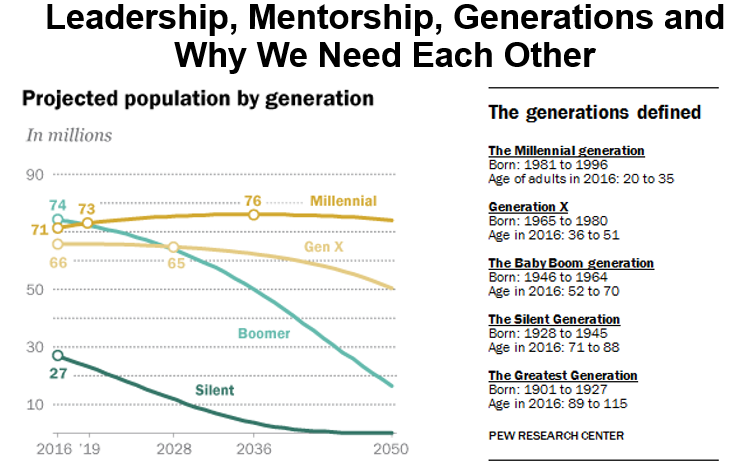A few years ago I wrote a book, Building Your Career Portfolio, discussing how mentoring fits into the activity of lifelong learning as part of a “portfolio” of wise career investments. I argued that when one considers his or her career as a portfolio of valuable investments, mentoring is like having pocket cash for immediate use!
But the old model of mentoring – where an executive in a mentoring role “reaches down” from atop the organization to provide sage advice to the mentee – is dead, or nearly dead! That’s because today’s organizational structures have been flattened to the point where top executives are in the trenches working, pressed for time.
Furthermore, even in companies with mentorship programs, the difficulty has been in sustaining such programs with the proper support infrastructure, corporate purpose, and program accountability including how to track success and return on investment.
If you’re an up-and-coming employee waiting for mentorship, take heart and wait no longer!
The newer, more empowering models of mentorship include peer mentoring on an informal basis, gathering a group to focus on a certain business topic, challenge or opportunity. This includes creating your own “learning circle” focused around a theme or area of interest, as well as your own “personal board of directors” to provide coaching for your business start-up or special projects.
With the emphasis on co-working spaces and collaborative working environment, there’s no better time than to take the reins and develop multiple sources of your own mentorship. Don’t wait for a “guru” to drop out of the sky – it will never happen!
Seven secrets to successfully FINDING mentors
- Assess what type of mentor you’re hoping to find. Job/career? Community leadership? Parenting/newly married? Work-life balance?
- Find those with proven track records and determine how to best gather this expertise together. For example, if you’re hoping to gain executive skills, find mentors with this proven track record – not people who talk a good line but have never been in the position.
- Be willing to put some structure into it. Meet on a regular basis, even if it’s only once a quarter. Put some accountability into the meetings, such as light homework and updates. Track progress and celebrate milestones!
- Don’t be “too needy!” Research shows that this is a drain on your mentor and will ruin the relationship. Rather, offer some type of reciprocal value to the relationship. Deliver on your deliverables. Don’t lean too heavily on your mentor(s).
- Mentoring is NOT counseling! If you need professional advice for deeper issues, find a well-recommended licensed behavioral health counselor. Your mentor most likely is not trained to assist with those deeper emotional problems and didn’t sign on for heavy-duty problem vetting!
- Avoid unhealthy mentoring relationships such as exclusive, secret alliances, as well as controlling, “power over and authority figure” structures such as seeking ongoing advice from your boss or direct supervisor who can control your performance reviews. Avoid any mentor arrangement that jeopardizes you, your self-esteem, your marriage and family, and your goals and important relationships.
- Finally, and this is something you probably won’t hear but it’s brutally true: Never use the term “pick your brain.” Avoid language that expresses the desire to “get together for coffee” to “pick someone’s brain about XYZ…” No one wants to waste time losing business hours to have you act like a giant siphon, sucking their time away while you pick their brain. In fact, Maria Forleo shares “Three Ways to Avoid People Who Want to Pick Your Brain!” on her fabulous career and business start-up website: https://www.marieforleo.com/2013/06/pick-your-brain/.
Four keys to BEING a great mentor
- Ask good questions – listen more than tell.
- Develop reasonable “homework” for your mentee so the next time you meet, you’ll have progress to talk about. Do not waste time with a mentee who is not serious about being accountable and results-focused.
- Remember that you are not your mentee’s personal savior and problem solver.
- As mentioned earlier, always avoid “power over” mentee relationships and conflict-of-interest authority situations.
References and Resources
Poore, Carol A. (2001). Building Your Career Portfolio. Boston, MA: Cengage.




